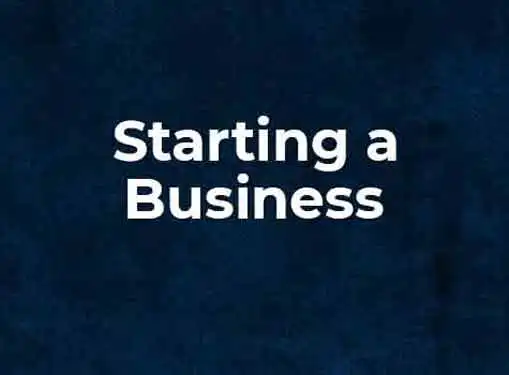Starting Your Business
Starting a Business in 2011
Going into 2011, new business startups will face a crowded marketplace. Here's how to help your startup survive and thrive in this year's competitive business environment.
Although early indicators seem to point toward an improving economy, starting a business in 2011 is not going to be a walk in the park.

As the U.S. and other nations gradually emerge from recessionary hibernation, businesses are packing the marketplace, eager to make up for several years of reduced revenues and low profit margins.
For new companies, that makes a 2011 launch a tricky proposition. You'll be up against a large number of experienced companies that have eliminated the fat and become lean, competitive machines. Given the number of companies that have an established market presence, new entries may find it difficult to rise above the noise and attract the attention of consumers.
However, there are also several factors that give startups an edge in 2011. Unlike established companies, startups can easily tailor their business model and product offerings to current market realities. While existing companies may need to invest in retooling and refocusing efforts, startups can incorporate the impact of the "new economy" into their initial business plan. Here's what you need to know to give your startup a fighting chance in 2011.
- Know your value proposition. Why should consumers buy your product? Or put differently, what does your business offer that no one else is currently offering in the marketplace? In 2011, you'll need to have a clear understanding of your company's value proposition to differentiate your products and your company.
- Know your industry. In addition to knowing your customers and your value proposition, you'll have to possess a thorough understanding of the industry before you take the leap in 2011. Some industries are in a state of flux, while others have circled the wagons and are placing higher priorities on industry relationships. But regardless, don't pull the trigger until you have a solid grasp of your industry's 2011 outlook.
- Don't put off market entry. Even though it's important to have a carefully crafted business plan prior to launch, don't wait too long to make a market entry. In competitive environments, time to market is decreased and startups need to be capable of quickly responding to changing conditions.
- Avoid competing on price. As a new business in a crowded field, forget about competing on price. Your startup simply won't have the operational efficiencies or scalability to survive a price war with larger, more established companies.
- Lay solid foundation prior to launch. Don't commit to a 2011 business startup until your personal finances are in order. A startup can be taxing on personal finances during the best of times. But in a competitive market, the personal pressures can become insurmountable.
Share this article
Additional Resources for Entrepreneurs



Conversation Board
We greatly appreciate any advice you can provide on this topic. Please contribute your insights on this topic so others can benefit.